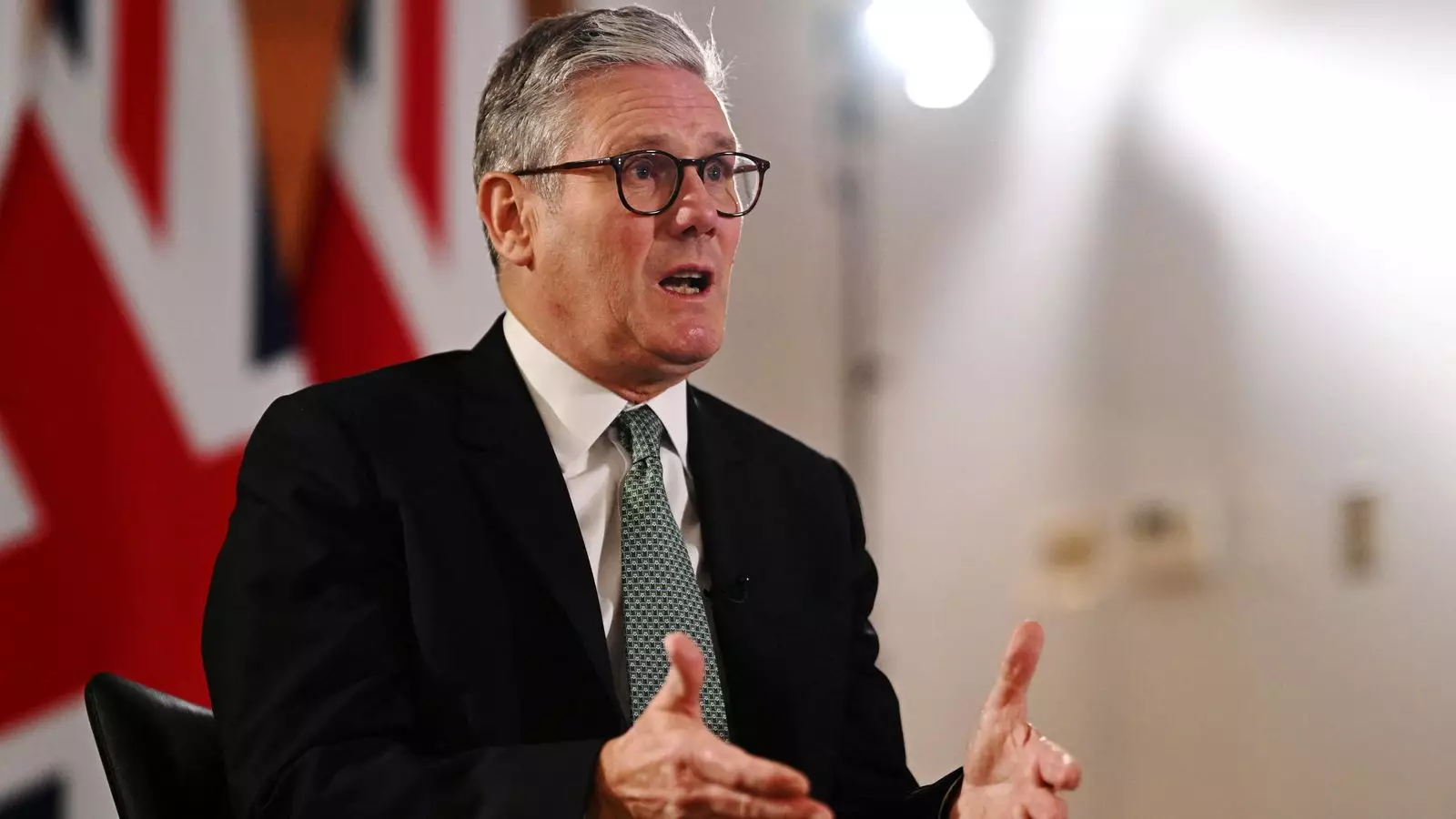In the often murky world of politics, the intersection of personal responsibilities and political obligations can create a challenging landscape for any leader. A recent incident involving Sir Keir Starmer, the leader of the UK Labour Party, exemplifies this complexity. He faced scrutiny after accepting a donation of £20,000 for a flat during a critical election period while emphasizing his commitment to protecting his family’s wellbeing. This situation raises significant questions about the ethics of political donations, the responsibilities of political leaders, and the public’s perception of their actions.
The backdrop of this controversy stems from the timing of the donation, which coincided with the run-up to a general election called on May 22. Starmer’s 16-year-old son was preparing for crucial exams, and the presence of journalists and protesters camped outside their home threatened to disrupt his study environment. Acknowledging the strain, Starmer articulated a paternal instinct to safeguard his son’s educational journey. This humanizing element adds a layer of complexity; however, it simultaneously shines a light on the vulnerabilities that public figures and their families face.
During a Sky News interview, Starmer maintained that no financial exchange took place regarding the flat donation, emphasizing that it was an opportunity made available to him in a moment of need. While he insists that this was a benign arrangement motivated by a desire to keep his son focused, criticisms arise as he has been vocally opposed to the Conservative Party’s acceptance of sizeable donations. Starmer’s point that his family comes first presents an ethical paradox: should political leaders prioritize family over the perception of integrity in their professional conduct? Moreover, the fact that Starmer’s acceptance of donations far exceeds that of other MPs adds another layer of scrutiny to his credibility.
Starmer’s struggles spotlight a broader debate about the rules governing donations in the political arena. Following criticisms, he reiterated that the human aspects behind financial figures must not be overlooked. He elaborated that each MP must individually weigh the ethical implications of accepting donations, especially in light of their potential to influence political decisions. However, the line between personal necessity and public accountability is tenuous; when does one outweigh the other?
Starmer’s previous statements that he would no longer accept donations for clothing indicate an awareness of public sentiment and a desire to change how politicians interact with financial backers. This shift may be a response to the growing calls for transparency regarding the sources of political funding. Yet, while the donation issue may strengthen his argument for family protection, it simultaneously undermines his credibility when he critiques the opposition for similar practices.
The influence of substantial donations cannot be ignored, particularly when examining the relationship between Starmer and his most significant donor, Lord Waheed Alli. With gifts totaling an astonishing £39,122, the connection raises considerable eyebrows as it entwines personal interests with political aspirations. The financial backing from prominent individuals can potentially create a landscape where political leaders are beholden to the whims of their benefactors, diminishing the integrity of their roles.
Lord Alli’s financial support extends beyond Starmer’s direct needs; he has also contributed to other Labour MPs, thus knitting himself into the very fabric of the party. This intermingling of finances and political support begs the crucial question: can a politician genuinely operate outside the influence of their largest donors?
Ultimately, the dilemma faced by Sir Keir Starmer reflects the intricate balance of addressing personal needs while striving for public authenticity in political roles. The interplay between family obligations and the responsibilities of leadership is complex, and it is further complicated by the nuances of financial donations in politics. How Starmer navigates this controversy moving forward will not only shape public perception but could also impact future legislation concerning the acceptance of donations. As the political landscape continues to evolve, so too must the frameworks that govern the financial facets of political life—ensuring that integrity remains paramount amidst the complexities of human and charitable relationships.


Leave a Reply